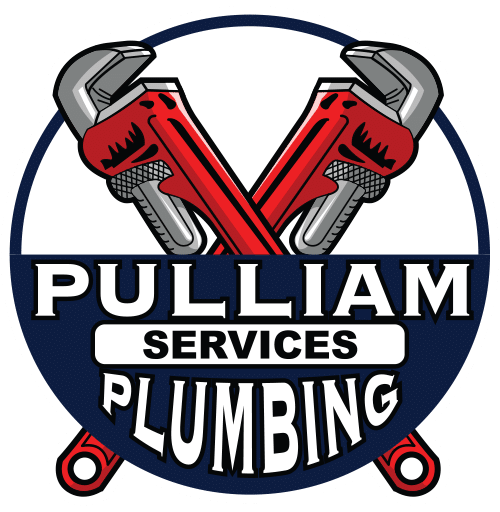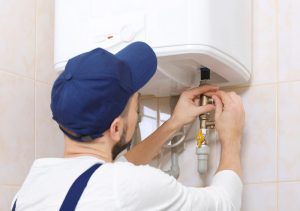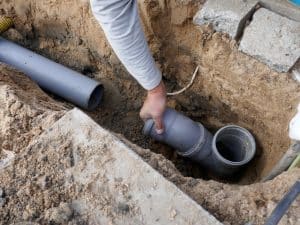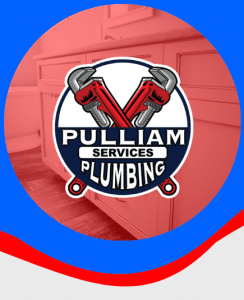Sewer backups can cause significant headaches and property damage, leaving homeowners in a tough spot. Pipes that are supposed to carry waste away suddenly become blocked, causing unpleasant overflows. This issue affects the plumbing system and can lead to costly repairs and health hazards.
Addressing issues early can help maintain the efficiency of your sewer system and avoid the stress and expense of a backup. Let’s dive into simple, effective ways to safeguard your home against sewer backups.
Understanding the Causes of Sewer Backups
Sewer backups happen when the flow in your pipes gets blocked, or water can’t flow freely. Several factors contribute to these blockages. The first common cause is tree roots. Trees naturally seek moisture, and their roots can invade sewer lines through tiny cracks, causing blockages. This can happen to old clay pipes and newer materials, leading to restricted flow and eventual backups.
Another cause is improper waste disposal. Pouring grease down the sink or flushing inappropriate materials like wipes or diapers down the toilet can create obstructions. These items can cause buildup in pipes, leading to clogs that block the flow. It’s important to remember that what goes down your drain should be something your plumbing system can handle.
Aging sewer lines also contribute to backups. Over time, pipes can corrode or collapse, causing blockages. Regular inspections and maintenance can help identify weak spots before they become serious problems. Heavy rainfall can also overload municipal sewers, causing backups in homes. Installing a sump pump or backflow prevention valve can mitigate flooding risks during storms.
By being mindful of these causes, you can take proactive steps to prevent sewer backups. Understanding the underlying factors sets the stage for effective prevention strategies.
Routine Maintenance Tips to Keep Your Sewers Clear
Routine maintenance plays a huge role in preventing sewer backups. Implementing simple practices keeps your lines clear and minimizes blockage risks. Start by scheduling regular drain cleaning. An enzyme-based cleaner can break down organic buildup in pipes monthly, helping maintain a free flow in your plumbing system.
Grease is a troublemaker for sewer pipes. Avoid pouring oils or fats down any drains. Instead, collect grease in a container and dispose of it in the trash. Regularly running hot water through your kitchen sink helps clear any accidental greasy residues that may cause clogs.
Tree roots are natural intruders in sewer lines, so clear shrubs and trees are away from the path. If roots are already an issue, root-kill treatments can help manage the problem. Regularly applying these treatments can also prevent future growth in your sewer lines.
Trash should never go down the toilet. Teach everyone in the household about appropriate waste disposal. Flush toilet paper only to avoid unnecessary clogs. Consider installing catch filters on all drains to trap hair and small debris before they enter your plumbing system. These small actions go a long way in keeping your sewers clear and preventing backups from disturbing your home.
Using Preventive Devices to Protect Your Home
Installing preventive devices is an effective way to guard against sewer backups. One valuable asset is the backwater valve, designed to block water from entering your home if sewer levels rise. This device acts as a one-way gate, allowing wastewater to exit your home but preventing it from flowing back in during heavy rains or system overloads.
Sump pumps serve as another line of defense, especially in basements. They remove water that accumulates from excessive rain or broken pipes, thus minimizing the risk of backups caused by flooding. Regular sump pump testing ensures that it’s in working order when needed.
Maintaining a good drainage system around your home also helps. Make sure your downspouts and gutters direct rainwater away from your foundation. This reduces the amount of water entering the sewer system, helping prevent overloads.
Another tip is to install water pressure regulators. High water pressure can strain pipes and fixtures, potentially leading to bursts. Regulators help maintain safe levels, preserving the durability of your pipes and preventing potential blockages and backups.
Recognizing the Signs of Potential Sewer Issues
Spotting early signs of sewer problems can prevent major backups. One of the first indications is slow drainage in sinks and bathtubs. If water takes longer to disappear, it’s time to inspect your plumbing for blockages.
Gurgling noises coming from the drains or toilets also signal trouble. They often indicate trapped air and suggest a blockage is forming. Keep an ear out for these sounds, as they usually precede backups.
Frequent clogs, especially in multiple fixtures, point to deeper issues within your sewer line. It could be due to tree roots or a deteriorating pipe structure. Addressing these symptoms early prevents more serious interruptions later.
Unpleasant odors wafting from drains are another red flag. Sewer gases can escape when there’s a blockage or leak, suggesting a sewer line malfunction that needs attention.
Consider calling a professional plumber if you notice any of these warning signs. They can diagnose the issue and recommend necessary actions to safeguard your plumbing system.
Conclusion
Preventing sewer backups requires a proactive approach. Understanding the causes and performing regular maintenance keeps your sewer system running smoothly. Preventive devices offer added protection, and being vigilant for early warning signs ensures you can handle issues before they escalate. By taking these steps, you maintain your home’s plumbing integrity and avoid disruptions caused by unexpected backups.
At Pulliam Plumbing, a proactive approach is key to preventing sewer backups. Our plumbers in Boerne, TX, offer comprehensive solutions, from routine maintenance to emergency interventions. If you’re facing persistent plumbing issues or want to install preventive measures, contact Pulliam Plumbing. We’re the highest-rated plumbing company in Boerne and Fair Oaks, Texas, ready to protect your home.




